At AllThingsNature, we're committed to delivering accurate, trustworthy information. Our expert-authored content is rigorously fact-checked and sourced from credible authorities. Discover how we uphold the highest standards in providing you with reliable knowledge.
What is Beekeeping?
Beekeeping, the practice of artificially maintaining honey bee colonies, is one of the oldest forms of food production. Formally known as apiculture, beekeeping is thought to have been practiced as early as 13,000 BC. The ancient Egyptians were particularly skilled in the art of beekeeping, since they considered honey to be an important part of their diet.
Although most people associate beekeeping exclusively with the collection of honey, there are many other ways modern beekeepers can earn an income from their colonies. For example, beeswax is often used to make candles and cosmetics. Royal jelly, a substance secreted from the hypopharyngeal glands of young worker bees, is a popular dietary supplement. Propolis, a resinous substance honey bees use to seal cracks in the hive, is used in alternative medicine, acupuncture, and homeopathy. Many commercial beekeeping operations also offer a crop pollination service that provides a significant portion of their annual income.

The place where a beekeeper keeps his bees is called an apiary or a bee yard. The bee colony is kept inside a hive that is made from a series of wooden boxes and frames that hold wax sheets for the bees to use as a starting point when building honeycomb. The top box contains honey, while the bottom box is used to hold the queen bee and most of the worker bees. In the United States, the most popular type of hive design used for beekeeping is known as a Langstroth bee hive.

Since bees can be dangerous, a beekeeper must take several safety precautions when working around a honey bee colony. A hat or veil is commonly used to keep the face and neck protected from stings. Gloves are another popular form of beekeeping protection, although many beekeepers complain that gloves restrict their movement. A hooded suit, typically made from a light colored fabric to help distinguish the beekeeper from the honey bee’s natural predators, may also be used.

While working with a honey bee colony, a beekeeper uses a smoker to help calm the bees. Smoke is useful in beekeeping because it masks the guard bee’s alarm pheromones and encourages the other bees to feed by tricking them into thinking they’ll soon need to abandon their hive. This gives the beekeeper enough time to inspect the colony and perform any needed maintenance. Pine needles, pulped paper, corrugated cardboard, or compressed cotton are some of the fuels that can be used in a bee smoker.
Frequently Asked Questions
What is beekeeping and why is it important?

Beekeeping, or apiculture, is the maintenance of bee colonies, typically in hives, by humans. It's crucial for the pollination of crops and natural flora, supporting biodiversity. Bees produce honey, beeswax, royal jelly, and propolis, all valuable to humans. According to the American Beekeeping Federation, bees contribute to the pollination of about one-third of the food we consume.
How does one start with beekeeping?

To start beekeeping, you should research and learn about bee biology, behavior, and hive management. Joining a local beekeeping association can provide mentorship and resources. You'll need to acquire bees, which are often sold as packages or nucs, and beekeeping equipment like hives, suits, and smokers. Start with at least two hives to compare colony health and productivity.
What are the risks involved in beekeeping?

Beekeeping involves risks such as stings, which can cause allergic reactions in some individuals. There's also the potential for financial loss due to colony collapse disorder (CCD) or other diseases and pests like Varroa mites. Proper education and hive management can mitigate these risks. The USDA reports that CCD losses have significantly decreased, reflecting improved management practices.
How much time does beekeeping require?

Beekeeping can vary in time commitment, depending on the scale and objectives. Hobbyist beekeepers might spend a few hours per week monitoring and managing their hives, while commercial operations require full-time dedication. Seasonal tasks include hive inspections, honey extraction, and winter preparations. Consistent attention is key to maintaining healthy colonies and preventing issues.
Is beekeeping environmentally sustainable?
Beekeeping is generally considered environmentally sustainable and beneficial. It supports pollination, which is vital for ecosystems and agriculture. Sustainable practices include avoiding the overharvesting of honey, providing diverse forage, and using natural pest control methods. Responsible beekeepers help maintain bee populations, which have been threatened by habitat loss and pesticides, as noted by the Environmental Protection Agency.
Can beekeeping be profitable?
Beekeeping can be profitable, but it often depends on scale, market demand, and the beekeeper's expertise. Products like honey, beeswax, and propolis can be sold, and services like pollination contracts can provide income. According to the National Honey Board, the U.S. honey industry was valued at over $300 million in 2020, indicating potential profitability for beekeepers.
AS FEATURED ON:
AS FEATURED ON:










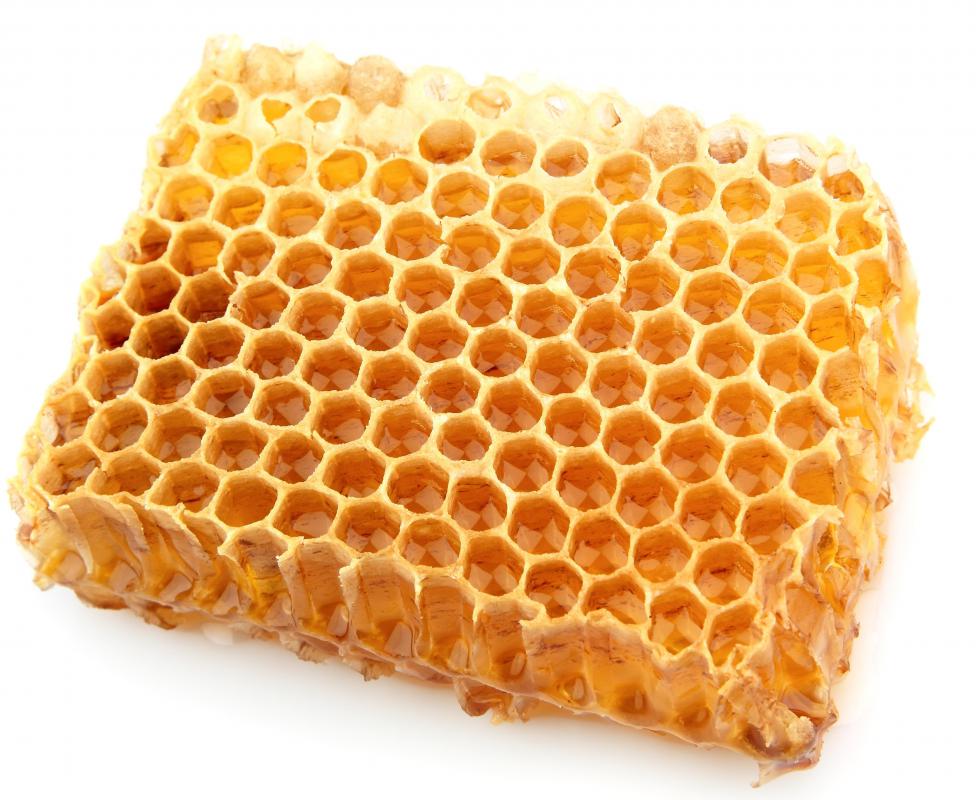

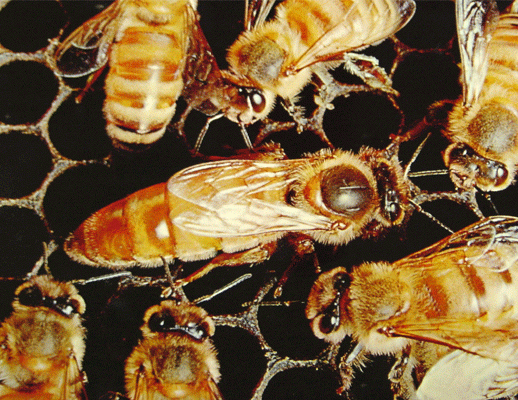
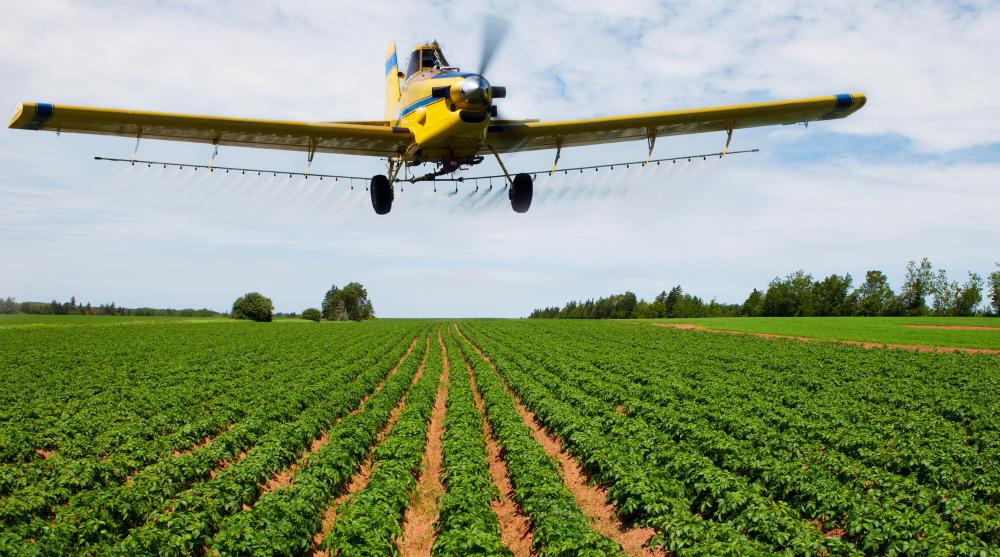
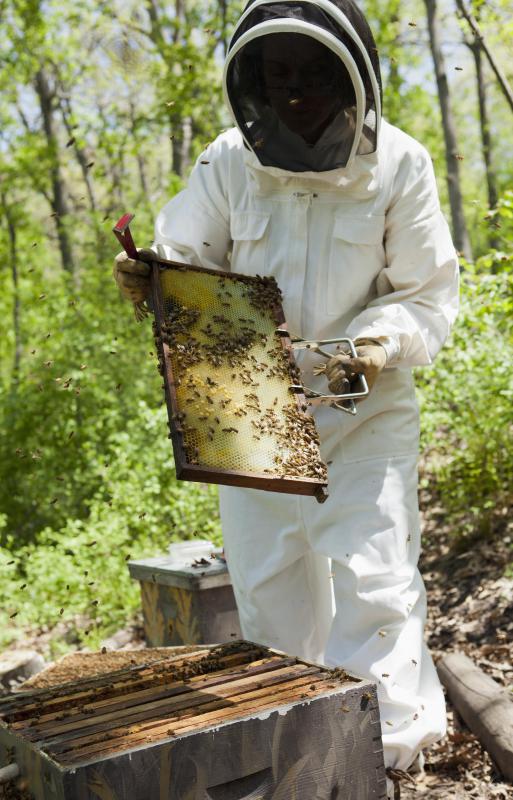
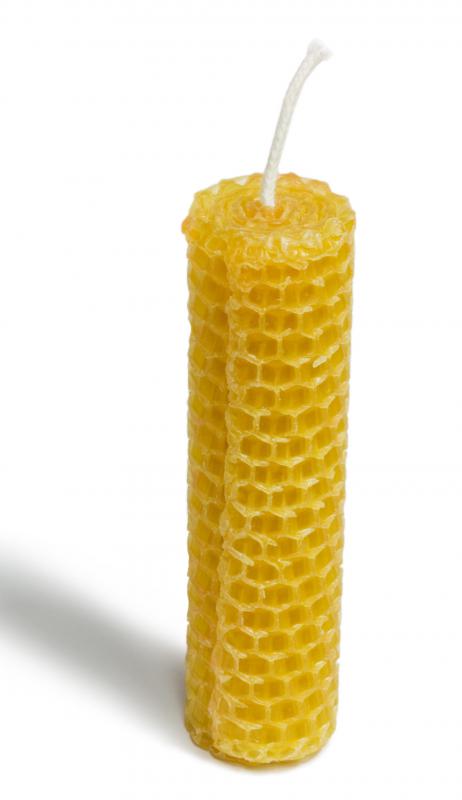

Discussion Comments
So much has been said about bees and honey, but no one ever has a thing on how beekeeping or the honey they produce impacted their health.
I have neighbors who are beekeepers! I always thought that was a pretty cool aspect of our community. However, they don’t just make honey for themselves. They also sell it.
It takes a lot of work, from what I understand, to keep up honeybee hives. The thing is that these folks are retired.
We live in a small community very close to a tourist attraction town, and they simply take their honey to a little stand and sell it.
It’s really pretty funny what all people will buy from you when you have a label stuck on it that says it’s homemade. It’s also kind of ridiculous how much they’ll pay for it.
Now, don’t get me wrong. I love some homespun honey as much as the next southern gal, but for fifteen bucks a small jar, you can keep it. Let the out of towners take care of it!
My neighbors make a pretty good little profit that supplements their income nicely. And, to be honest, I don’t think it’s over the table, if you get my meaning.
I knew nothing about this topic until recently. I had no interest in it either until I read a novel called 'The secret lives of bees'.
The beekeeping information in the book wasn't the main point, but it made me want to know more. That thirst for knowledge led me to this article, which is real useful.
If I ever live in a suitable place I'd quite like to do a little honey beekeeping myself. Whoever thought a simple story could turn my mind around so completely?
It does take a little bit of investment to get started with beekeeping. If you are handy at building things, you can make your own hives and save some money. We built and painted all of our own hives.
You can also order the hives already built and painted from many bee suppliers. We order a lot of our beekeeping equipment from Dadant which is a big supplier.
Once you get your hives and frames set up, you need to order your packages of bees. If you live in an area where there are some bigger beekeepers, you should be able to connect with them and find out the best way to get your bees.
If you are just starting out, I would suggest getting at least two hives. That way if something happens with one, you have a good chance of the other one doing OK.
Many times you won't get much of a honey crop the first year. Our first year we started out with five hives, and we able to extract enough honey to keep us supplied until the next year.
Our state has a honey extractor that is available for use if you don't have one of your own. This is a nice way to extract your honey without the expense of an extractor when you are first starting out.
I have been a beekeeper for 5 years now, and am still am very fascinated by the whole thing. There are a lot of books and resources available, but I think what was most helpful for me was connecting with other local beekeepers.
If you are able to enroll in any kind of beekeeping courses, it is well worth your time and money. There are a lot of questions when you are first starting out, and these courses are invaluable for helping you get started successfully.
You will also meet others who share this similar interest, and every beekeeper I have ever met loves to talk bees and share information.
There are many beehives that are declining in number and bees are so important for the pollination of about one third of the food we consume. I think it is important to have as many beekeepers as possible. It is one of the most fascinating things I have ever been involved with.
My husband and I became interested in beekeeping a few years ago. I have a cousin who is a commercial beekeeper and we were fascinated with the whole process.
I ordered the Beekeeping for Dummies book online and this was the beginning of our adventure. Our local community college has classes for beginning beekeepers, so we both took this course as well.
The first spring we only started out with a few hives. A local beekeeper orders new bee packages complete with a queen so that is how we got started. We started out with 2 pound packages of bees, a queen, and installed them in our newly built hives.
This has been quite a learning experience for us, but we have grown by a few hives every year. There is nothing more satisfying than extracting that first crop of honey.
Many of our family and friends look at us in a strange way when we tell them we raise honeybees, but they sure enjoy the sweet honey we share with them.
@gravios - I would say that you're very right. If all you wanted was a few jars of honey a year for your own use, it would probably be a huge pain in the neck to set up a whole beekeeping operation for that.
It seems to me that the way to make it worth your time would be to have a big enough setup to sell the honey, or do crop pollination or whatever.
Otherwise just buy some homey at a farmer's market or something, or trade for some with a farmer.
@Ivan83 - Here is my inexpert answer to a couple of your questions:
The bees don't fly away because they are attracted to the queen, for the most part. They are also pretty well-regimented social animals and the colony is like their home. The different kinds of bees have different jobs in the colony.
That said, I am quite sure that bees do migrate from place to place sometimes, and may set up new hives away from the main colony.
As far as the safety aspect, as long as you aren't allergic to the stings and follow the usual precautions you'd be all right. You would not want to raise the bees on your balcony in an apartment complex, obviously, but given the right gear and plenty of space I'm sure you would be okay.
You would likely want to work with another beekeeper or maybe join a beekeeping club to get some experience before jumping into something like this.
@anon4701- You don't really make a hive, the bees do it for you. What you have to do is set up the boxes and give them space to work, then put your initial colony of bees in there. They will build up the honeycombs.
As for the boxes, you can make them yourself out of wood, or you can buy them from somebody.
The taste of fresh, local, organic honey is unlike anything you have ever tried and vastly better than any honey for sale in the stores. The flavor almost does not compare. Good honey is sweet and rich and buttery without every being overpowering. Some of the honey you buy from the store just tastes like a slurry made of powdered sugar. Whenever possible avoid this factory produced honey in favor of a more humane, sustainable and ecologically responsible honey grown locally.
So lets say that I set up an operation of beekeeping hives in my back yard with the intention of making honey. What is to stop the bees from simply flying away, or worse yet, flying into my neighbors yard and creating a terror in the neighborhood?
I am really interested in honey bees beekeeping but I want to make sure I understand what is involved before I go and buy beekeeping supplies. Is beekeeping as dangerous as it sounds or is there a way to ensure the safety of myself, my family and my neighbors while still enjoying my own honey?
While bee keeping seems like a fascinating hobby and I have a deep respect for the bee and its place within out ecosystem, it has always seemed like a huge waste of time and money to try and set up your own home bee keeping operation.
I had a friend that had a hive in his backyard so I have seen first hand how much work it takes. As you might expect, working with the bees is a dangerous and delicate process. All of this work and effort and the only thing you get out of it is honey.
Now don't get me wrong, I love honey, but at some point you have to draw a line about what you will produce for yourself and what you will accept buying from a store. And I have decided that I am more than happy to let other people fool with bee wrangling and then buy my honey from them.
how do you make a hive?
Post your comments